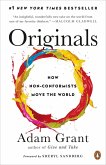This stimulating book surveys the research on the challenges and opportunities encountered when working within culturally and geographically diverse organizational settings. Expert contributors pose and address complex questions regarding cultural competence and leadership in today's rich landscape of global organizations, multiple-leader teams, extensive coordination among locations, and ever-evolving virtual communication technologies. The ideas described here focus not only on building cultural skills to develop and sustain teams, but also on applying knowledge, building insight, evaluating performance, and training team members to be leaders. Among the book's innovations: the Globally Intelligent Leadership framework, strategies for building multicultural collaborative leadership, military and peacemaking perspectives, and new approaches for assessing cross-cultural competencies.
Included in the coverage:
· Globally Intelligent Leadership: toward an integration of competencies.
· Considerations and best practices for developing cultural competency models in applied work domains.
· Cultural dilemmas and sociocultural encounters: an approach for understanding, assessing, and analyzing culture.
· Conflict competence in a multicultural world.
· Twenty countries in twenty years: modeling, assessing, and training generalizable cross-cultural skills.
· Expecting the unexpected: cognitive and affective adaptation across cultures.
Critical Issues in Cross Cultural Management will interest students, scholars, and practitioners in industrial organizational psychology, organizational behavior, work psychology, and applied psychology programs looking for a summary of up-to-date research and viewpoints on this increasingly salient topic.
Included in the coverage:
· Globally Intelligent Leadership: toward an integration of competencies.
· Considerations and best practices for developing cultural competency models in applied work domains.
· Cultural dilemmas and sociocultural encounters: an approach for understanding, assessing, and analyzing culture.
· Conflict competence in a multicultural world.
· Twenty countries in twenty years: modeling, assessing, and training generalizable cross-cultural skills.
· Expecting the unexpected: cognitive and affective adaptation across cultures.
Critical Issues in Cross Cultural Management will interest students, scholars, and practitioners in industrial organizational psychology, organizational behavior, work psychology, and applied psychology programs looking for a summary of up-to-date research and viewpoints on this increasingly salient topic.








